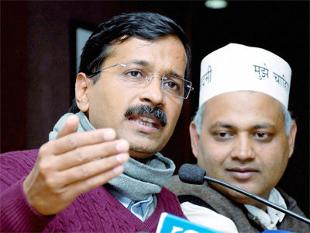Jan 18: To mark the 30th anniversary of the mass exodus of Kashmiri Pandits from the Valley, members of the community took to social media to post videos of themselves by narrating the "Hum Aayenge Apne Watan" dialogue from an upcoming flick, 'Shikara', with the hope that they would return to their homeland one day.
On January 19, 1990, lakhs of Kashmiri Pandits were forced to leave their homes in the Valley following a genocidal campaign launched by the terrorists.
Theatre actor Chandan Sadhu participated in the campaign and said that Kashmiri Pandits have shown "unimaginable resilience" and hope to return to the Valley soon.
"As Kashmiri Pandits complete 30 years in exile this weekend, let our cry for justice be finally noticed. We have shown unimaginable resilience, and today we resolve to return home. Kashmiri Pandit friends: please record this video statement and put it up with #HumWapasAayenge," Sadhu tweeted.
The #HumWapasAayenge is trending on Twitter as more and more Kashmiri Pandits joined in the campaign to narrate the "Hum Aayenge Apne Watan" dialogue and a pledge to return to their homes.
Noted political commentator Sunanda Vashisht tweeted a throwback image of herself and said that resolve to go back home has strengthened more.
"I don't have many pictures left of my childhood. Choosing between life and family albums is really no choice at all. When lives were rescued, family albums got left behind. 30 years have passed. Resolve to go back home has only strengthened. #HumWapasAayenge," she tweeted.
Radio personality Khushboo Mattoo tweeted a video repeating the dialogue from Shikara and tweeted, "Said this in a BBC interview three years back. And I am saying it again #HumWapasAayenge #Shikara."
Journalist Rahul Pandita also took to his Twitter and captioned his post saying, "30 years of exile from Kashmir. Let us now pledge that we will return home."
'Shikara' chronicles the exodus of Kashmiri Pandits from the Valley on the night of January 19, 1990. Helmed by Vidhu Vinod Chopra, the movie is slated to release on February 7.
Netizens have supported the initiative and have expressed solidarity with the Kashmiri Pandits.
In July last year, Home Minister Amit Shah said in the Rajya Sabha that the central government is committed to bringing Kashmiri Pandits and Sufis back to the Valley saying a time will come when they will offer prayers at the famous Kheer Bhawani temple.
"Kashmiri Pandits were forced to leave Kashmir. Many of their shrines were demolished. Sufism was targeted in Jammu and Kashmir. Sufism used to talk about unity and harmony but they were attacked. No voice was raised in favour of Kashmiri Pandits and Sufis when they were brutally attacked. Sufis used to talk about the unity among Hindus and Muslims but they were forced to leave the Valley. Narendra Modi-led government is committed to bringing back Kashmiri Pandits, he had said.
The Mata Kheer Bhawani temple is one of the holiest shrines of Kashmiri Pandits, located about 14 kilometres east of Srinagar.
Last September, a delegation of the Kashmiri Pandit community met the Prime Minister in Houston and thanked him for the historic decision to abrogate Article 370 that gave special status to Jammu and Kashmir.
Modi acknowledged the hardships endured by the community following their exodus from their ancestral homeland back in 1989-1990 due to militancy.
"You have suffered a lot, but the world is changing. We have to move ahead together and build a new Kashmir," the Prime Minister had told the delegation.
"I had a special interaction with Kashmiri Pandits in Houston," Modi had tweeted following the interaction.
In October, Union Minister Prakash Javadekar announced that the Centre has decided to provide compensation of Rs 5.5 lakh each to 5,300 displaced families from Pakistan-occupied Kashmir (PoK), who initially opted to move outside Jammu and Kashmir but later on returned.
These families were earlier left out in the rehabilitation package that was approved by the Cabinet on November 30, 2016.
The Prime Minister had announced a reconstruction plan for Jammu and Kashmir in November 2016. His plan included a rehabilitation package for a one-time settlement of 36,384 displaced persons' (DPs) families of PoK-1947 and Chhamb.
 New Delhi, Jan 14: In the latest twist to the controversy surrounding AAP leader Somnath Bharti, Delhi's CM Arvind Kejriwal defended his law minister saying that the court's observation in the matter is "completely wrong".
New Delhi, Jan 14: In the latest twist to the controversy surrounding AAP leader Somnath Bharti, Delhi's CM Arvind Kejriwal defended his law minister saying that the court's observation in the matter is "completely wrong".




Comments
Add new comment